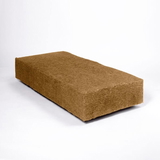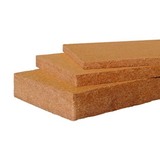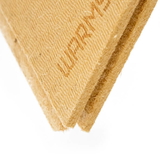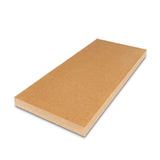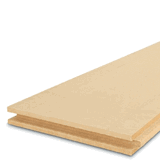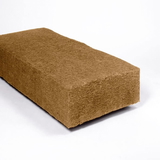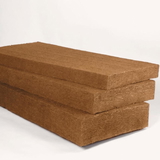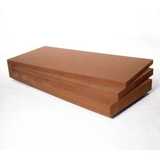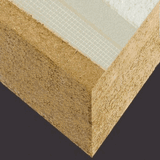- Blogs
- Wood Fibre Insulation: Your Guide to Eco-Friendly Home Comfort
Wood Fibre Insulation: Your Guide to Eco-Friendly Home Comfort
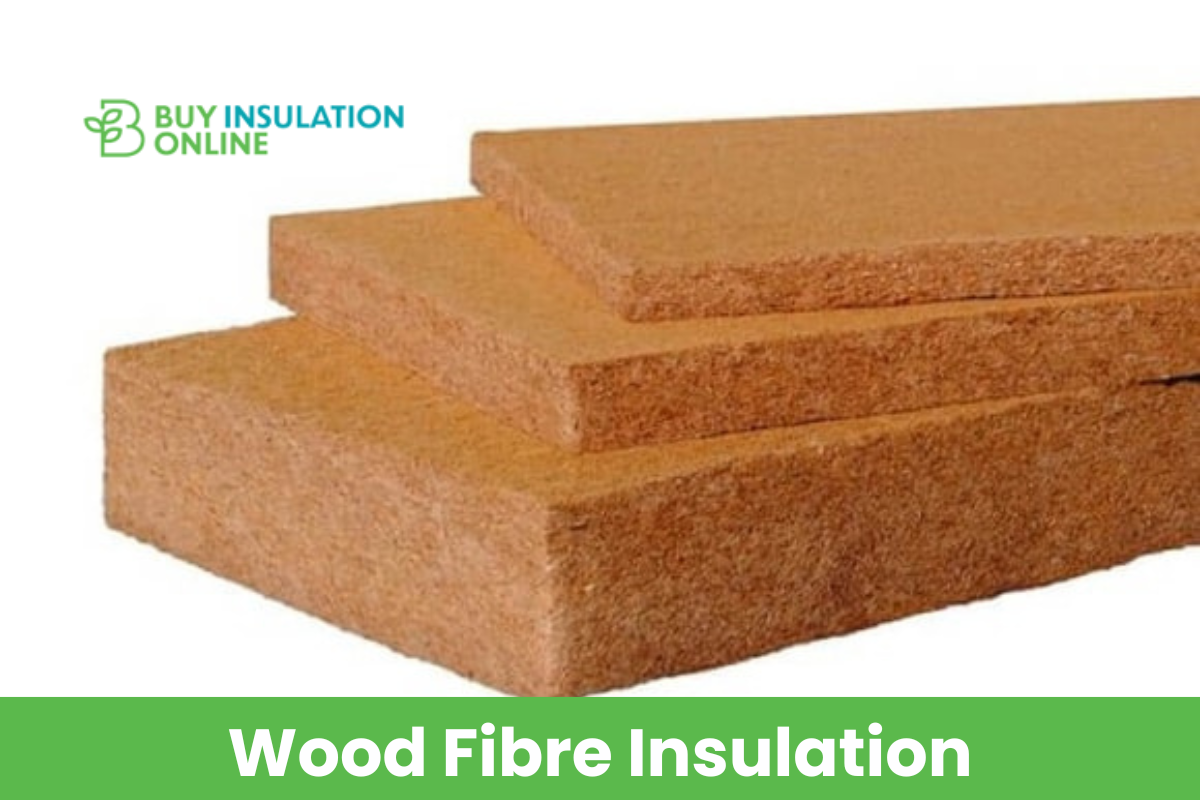
Wood fibre insulation is a type of insulation that is made from natural and renewable materials, such as wood, straw, hemp, or cotton. Wood fibre insulation is an eco-friendly and sustainable choice for your home, as it helps you save energy, reduce carbon emissions, and improve indoor comfort. Wood fibre insulation has many benefits, such as:
- It provides excellent thermal performance, keeping your home warm in winter and cool in summer.
- It is fire resistant, as it does not melt or spread flames in case of fire.
- It regulates moisture, as it allows water vapour to pass through without condensing or causing mould.
- It absorbs sound, as it reduces noise transmission and creates a quiet and peaceful environment.
- It is environmentally friendly, as it is made from renewable resources and does not contain harmful chemicals or synthetic additives.
In this article, we will provide you with information and guidance on wood fibre insulation products from Buy Insulation Online, a leading online retailer of insulation materials in the UK.
We will introduce you to the different types of wood fibre insulation products available from Buy Insulation Online, explain how to choose the right product for your project and show you how to install them safely and correctly.
Types of Wood Fibre Insulation Products
Buy Insulation Online offers a wide range of wood fibre insulation products for various applications and purposes. The main types of wood fibre insulation products are:
- Batts: These are flexible and soft panels of wood fibre that can be cut and fitted between studs, joists, or rafters. They are ideal for insulating walls, roofs, floors, or lofts. Some examples of batts products are Steico Flex 036 Wood Fibre Insulation Batts and Pavaflex Wood Fibre Insulation Batts.
- Boards: These are rigid and dense panels of wood fibre that can be fixed to the surface of walls, roofs, or floors. They are ideal for insulating external walls, internal walls, or roofs. Some examples of boards products are Steico Therm Wood Fibre Insulation Board, Steico Duo Dry Plater Render Carrier Board, Steico Special Dry Sarking Board, Steico Wood Fibre Insulation Render Carrier Boards, Steico Universal Sheathing and Sarking Board, Pavadry Wood Fibre Insulation, and Steico Therm Wood Fibre Insulation Boards.
- Kits: These are complete packages of wood fibre insulation products that include everything you need to insulate your internal walls. They are ideal for retrofitting existing walls without affecting the original structure or appearance. An example of a kit product is the Warmshell Woodfibre Internal Wall Insulation Kit.
The different types of wood fibre insulation products have different characteristics and features, such as thickness, density, application method, and price. You can compare and contrast the products on the Buy Insulation Online website to find the best option for your needs.
Wood Fibre Insulation
How to Choose the Right Wood Fibre Insulation Product for Your Project
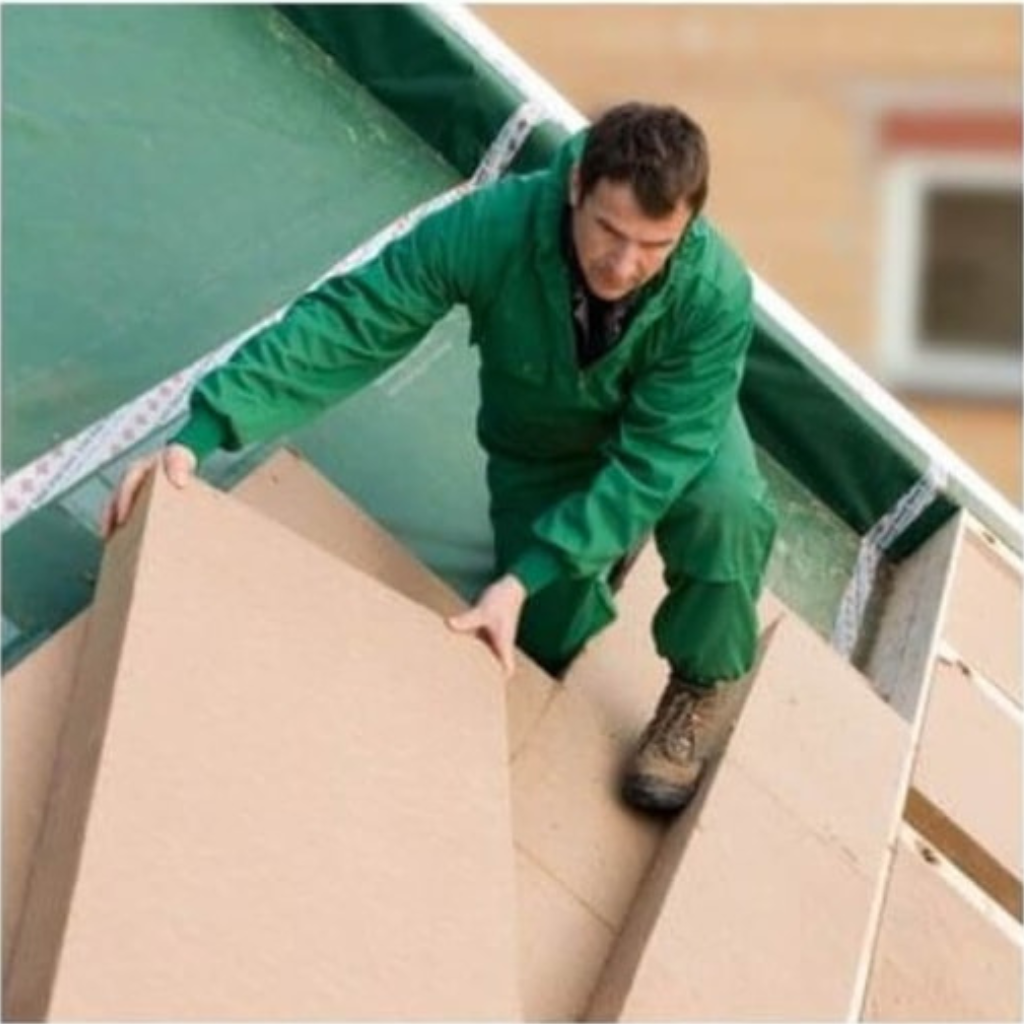 Choosing the right wood fibre insulation product for your project depends on several factors, such as:
Choosing the right wood fibre insulation product for your project depends on several factors, such as:
- The type of building: You need to consider whether your building is new or old, detached or attached, single-storey or multi-storey, etc.
- The location of the insulation: You need to consider whether you want to insulate your external walls, internal walls, roof, floor, or loft.
- The desired thermal performance: You need to consider how much heat loss or gain you want to prevent or allow through your insulation.
- The budget: You need to consider how much money you are willing to spend on your insulation project.
To help you choose the right product for your project, here are some scenarios and examples of how to apply the products in different situations:
- If you want to insulate your external walls with a high thermal performance and a low environmental impact, you can use Steico Therm Wood Fibre Insulation Board. These are rigid boards that can be fixed to the outside of your walls with screws or nails. They provide a high level of thermal resistance (up to 0.036 W/mK) and fire protection (up to Euroclass E). They also have a low embodied energy (up to 0.6 MJ/kg) and a high carbon storage (up to 1.8 kg CO2/kg). They are available in different thicknesses (from 40 mm to 240 mm) and sizes (from 1200 mm x 380 mm to 2800 mm x 600 mm).
- If you want to insulate your internal walls with a low cost and a simple installation, you can use Warmshell Woodfibre Internal Wall Insulation Kit. This is a complete package that includes everything you need to insulate your internal walls with wood fibre batts and boards. The kit consists of Steico Flex Wood Fibre Insulation Batts, Steico Duo Dry Plater Render Carrier Boards, Warmshell Fixings, Warmshell Adhesive, and Warmshell Plaster. The kit provides a moderate level of thermal resistance (up to 0.038 W/mK) and fire protection (up to Euroclass E). It also has a low cost (from £19.99 per m2) and a simple installation (no need for battens or vapour barriers). The kit is available in different thicknesses (from 60 mm to 140 mm) and covers an area of up to 10 m2.
- If you want to insulate your roof with a flexible and breathable insulation, you can use Pavaflex Wood Fibre Insulation Batts. These are flexible batts that can be cut and fitted between rafters or purlins. They provide a good level of thermal resistance (up to 0.039 W/mK) and fire protection (up to Euroclass E). They also have a high breathability (up to 3 MNs/g) and a high moisture regulation (up to 15% by volume). They are available in different thicknesses (from 40 mm to 200 mm) and sizes (from 1220 mm x 575 mm to 1220 mm x 375 mm).
These are just some of the examples of how to choose the right wood fibre insulation product for your project. You can find more information and details on our website Buy Insulation Online website, where you can browse the products, compare the prices, and read the reviews.
How to Install Wood Fibre Insulation Products
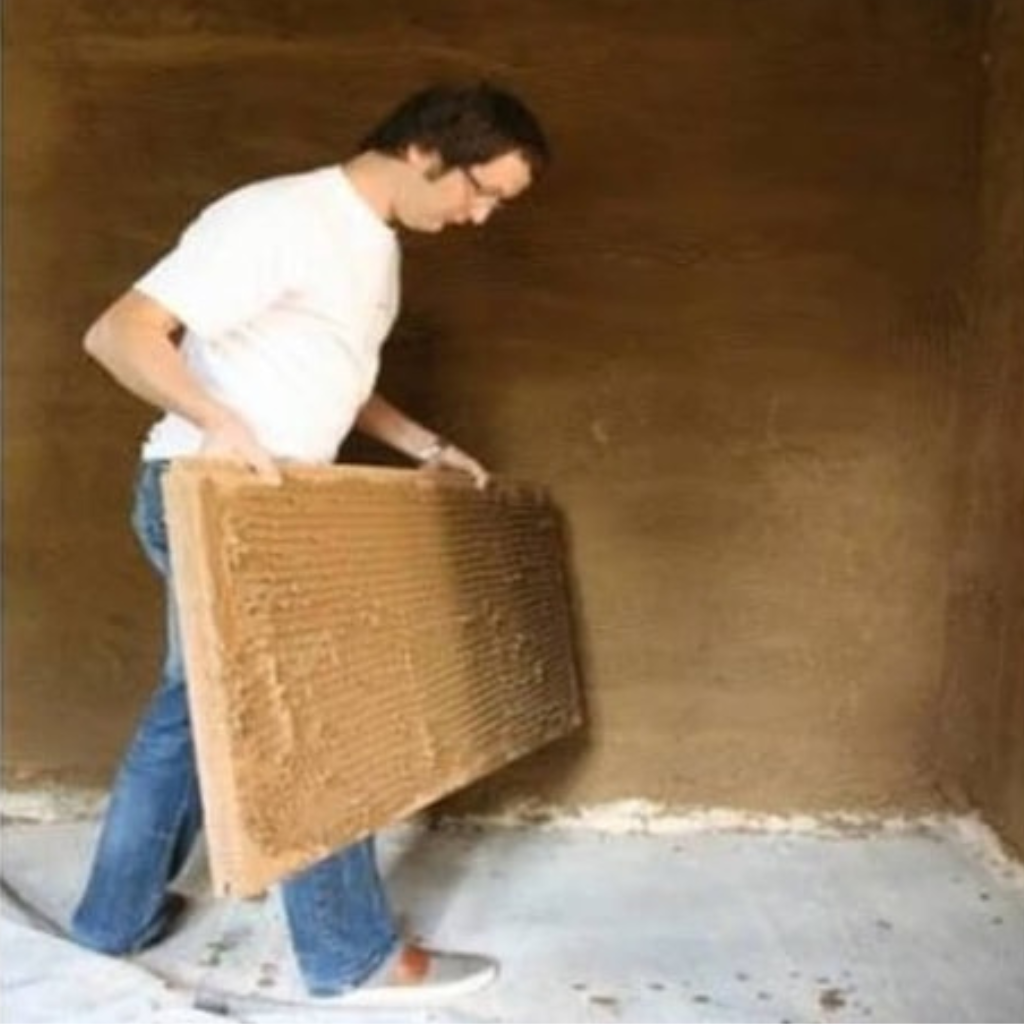 Installing wood fibre insulation products is not difficult, but it requires some care and attention. You need to follow the general steps and procedures for installing insulation products safely and correctly, such as:
Installing wood fibre insulation products is not difficult, but it requires some care and attention. You need to follow the general steps and procedures for installing insulation products safely and correctly, such as:
- Measure the area you want to insulate and calculate the amount of material you need.
- Prepare the surface you want to insulate and make sure it is clean, dry, and free of any defects or obstructions.
- Cut the insulation material to the required size and shape using a sharp knife or saw.
- Fit the insulation material between or onto the studs, joists, rafters, or purlins, making sure there are no gaps or overlaps.
- Fix the insulation material in place using the appropriate tools and accessories, such as screws, nails, clips, tapes, or adhesives.
- Seal the edges and joints of the insulation material using the appropriate materials, such as foams, mastics, or membranes.
- Finish the surface of the insulation material using the appropriate materials, such as plasters, renders, paints, or claddings.
You also need to follow some specific instructions and recommendations for each product type, such as:
- For batts products, you need to compress them slightly when fitting them between studs, joists, or rafters, to ensure a snug fit and avoid thermal bridging. You also need to leave a gap of at least 50 mm between the batts and any heat sources, such as chimneys or pipes.
- For boards products, you need to align them horizontally or vertically when fixing them to the surface of walls or roofs, depending on the direction of the studs or rafters. You also need to stagger the joints of the boards by at least 150 mm when installing them in multiple layers.
- For kits products, you need to follow the instructions provided in the kit manual, which include detailed steps and diagrams for installing each component of the kit.
The most important thing is to follow the manufacturer’s guidelines for each product type, which are available on our website Buy Insulation Online or on the product packaging. You also need to use the appropriate tools and accessories for each product type, which are also available on our website Buy Insulation Online.
Frequently Asked Questions
Q: What is wood fibre insulation?
A: Wood fibre insulation is a type of thermal insulation made from natural wood fibres. It is commonly used in construction for its excellent thermal and acoustic properties.
Q: What are the advantages of wood fibre insulation?
A: Wood fibre insulation offers several advantages. It is a sustainable and eco-friendly material, as it is made from natural wood. It provides excellent thermal and acoustic insulation, reducing energy consumption and improving the comfort of your home. It is also breathable and helps regulate moisture levels, preventing condensation and mold growth.
Q: How is wood fibre insulation made?
A: Wood fibre insulation is made through a dry process, where natural wood fibres are mechanically processed and bonded together to form insulation panels. No synthetic materials or chemicals are added during the manufacturing process.
Q: Can wood fibre insulation be used for both internal and external wall insulation?
A: Yes, wood fibre insulation can be used for both internal and external wall insulation. It can be installed between the timber frames of internal walls or as external insulation behind a render or cladding system.
Q: How does wood fibre insulation compare to synthetic insulation?
A: Wood fibre insulation is a natural alternative to synthetic insulation materials. It offers comparable thermal performance and acoustic insulation properties. However, wood fibre insulation is a more sustainable and environmentally friendly choice.
Q: What is the thermal conductivity of wood fibre insulation?
A: The thermal conductivity of wood fibre insulation is generally low, which means it is an effective material for reducing heat transfer. Its thermal performance can vary depending on the density and thickness of the insulation.
Q: Is wood fibre insulation suitable for timber frame buildings?
A: Yes, wood fibre insulation is suitable for timber frame buildings. It can be installed between the timber frames to provide thermal insulation and improve the energy efficiency of the building.
Q: What is the difference between wood fibre insulation boards and flexible wood fibre insulation?
A: Wood fibre insulation boards are rigid insulation panels that can be easily installed in walls, roofs, or floors. Flexible wood fibre insulation, on the other hand, is a loose-fill insulation material that can be blown into wall cavities or other hard-to-reach areas.
Q: What is the role of wood fibre sarking boards in insulation?
A: Wood fibre sarking boards are designed to be installed on the exterior of a roof or wall to provide additional insulation and protect against wind and moisture. They are typically used in combination with other insulation materials.
Q: Can wood fibre insulation be used in conjunction with other insulation materials?
A: Yes, wood fibre insulation can be used in conjunction with other insulation materials. It can be combined with rigid foam insulation, wool insulation, or other materials to achieve the desired thermal and acoustic performance.
Conclusion
Wood fibre insulation is a natural and sustainable choice for your home, as it provides excellent thermal performance, fire resistance, moisture regulation, sound absorption, and environmental friendliness.
Buy Insulation Online offers a wide range of wood fibre insulation products for various applications and purposes, such as batts, boards, and kits. You can choose the right product for your project depending on factors such as the type of building, the location of the insulation, the desired thermal performance, and the budget, you can choose the perfect wood fibre insulation product for your project.
Installation is a straightforward process, following general insulation guidelines and manufacturer-specific recommendations. By selecting and installing wood fibre insulation correctly, you can create a more comfortable, sustainable, and eco-friendly living space.

Samuel Hitch
Managing Director
Buy Insulation Online.
Leave A Reply
Your feedback is greatly appreciated, please comment on our content below. Your email address will not be published. Required fields are marked *
